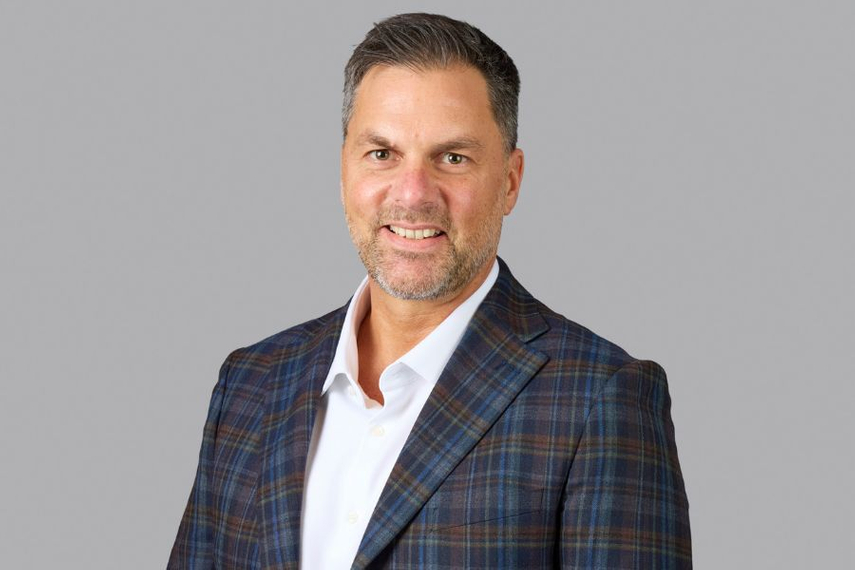
By now, the fragmentation of agency networks and the explosion of specialist marketing suppliers have been well-documented, leaving global brands drowning in a churn of endless transformation initiatives. Today, more than ever, marketing leadership teams are finding themselves juggling relationships with multiple agency partners while facing pressure to bring capabilities in-house, master first-party data, and demonstrate measurable growth—all with diminishing strategic support.
MediaSense, known for forensic analysis of media performance and agency relationships, is pushing to fill this strategic void. The company made two aggressive moves in 2024: Absorbing PwC's UK media advisory practice in May and in November, acquired R3, a a global consultancy that advises marketers and their agencies on ways to enhance operational effectiveness and resource efficiency, and to optimise media strategies, and marketing investments.These deals, coupled with bringing in Jamie Posnanski as CEO in December 2024, hope to position the advisory to tackle what Posnanski describes as "transformation fatigue" plaguing global brands.
Posnanski's appointment is telling. As the former global managing director at Accenture Song, he watched firsthand as clients struggled with the hollow promise of one-stop-shop solutions. Earlier, he built and sold digital agency Avventa [eventually sold to Accenture in 2012], giving him insight into both sides of the client-agency dynamic. This very experience shapes his conviction that the global holding company model is "fundamentally broken"—a view supported by MediaSense and The World Federation of Advertisers' own data showing only 11% of clients believe their agency models are fit for purpose.
Campaign sat down with Posnanski during his recent visit to Singapore to dissect why marketing transformation initiatives keep failing, how the advisory landscape has evolved, and what it actually takes to orchestrate multiple agency relationships effectively in 2025.
Campaign: Given your prior consultancy experience, where do you think MediaSense sits today amongst the bevy of advisories in the global landscape?
Posnanski: First and foremost, objectivity is one of its key differentiators. Our interest lies in helping clients solve problems rather than owning the execution or expanding scope of services—it's about enabling them to get the best results from their existing partnerships. While their partners are critical, clients are typically either understaffed or under-resourced internally, and therefore over-rely on agencies. The agencies, consultancies, or tech providers are deep in their own areas but don't really have an incentive to collaborate across boundaries.
Traditional consultancies have been very good at telling clients what they already know about their problems. They can recommend ways to transform, but if they haven't lived in the implementation of those solutions, it becomes just a theoretical exercise. The appreciation for what it actually takes requires a practitioner's lens. It also requires a deep understanding of the nuances of individual markets and brands. You can't apply a global design with the expectation that it can simply be implemented in individual markets. Some markets are actually leading in certain categories or channels in ways that are more sophisticated than what you might see from a global perspective.
It's interesting you mention not owning the execution layer as a unique selling point. For the last few years, it seemed the market had shifted from pure strategic advisory to transformation services, with even the big consultancies moving into execution. How does your approach serve as a differentiator?
The reality is that no single agency or provider can be as deep as necessary in all the new capabilities, or understand how they apply across different markets, brands, and categories. It inevitably becomes an exercise in generalist application of capability. Our role is understanding and helping clients determine the right mix of specialised partners while applying consistent measurement frameworks and defining clear expectations for each partner's role in the process. Looking at industry trends since I started my agency in 2006, we've seen clients cycle through various approaches: Consolidating everything, centralising, decentralising, outsourcing, and insourcing.
The fundamental challenge is that they're not actually addressing the core problem, which isn't particularly glamorous—it's about process. What are the frameworks? How are you going to measure what matters and get everyone connected in a unified way? Having that comprehensive view and understanding of each set of capabilities, providers, and how they can play a role for brands and marketers is, I think, the unique aspect of what we can do.
How do your 2024 acquisitions bolster or support this positioning, and how do these pieces work together to serve that vision?
If you look at the major categories of spend—agency, media, labour, and tech—these elements need to be interoperable. Looking at the capabilities now, there's deep media expertise from the PwC team particularly in the UK and Europe, while R3 [and its co-founder Shufen Goh] brings an established track record in agency evaluation across EMEA, North America and APAC. What makes this combination interesting is how it addresses what I saw at Accenture—the challenge of siloed capabilities that weren't necessarily orchestrated to benefit clients holistically. No single agency or provider can be as deep as necessary in all capabilities. My philosophy is to help clients optimise from where they are right now, whether that's focusing on agency relationships, examining their operating model, or addressing media challenges. But it has to align with their broader ambitions rather than pushing them toward a predetermined solution.
What is your take on the waves of agency consolidation and reorganisation we're seeing today, such as the impending Omnicom-IPG merger? Are these symptoms of deeper industry problems?
One hundred percent. The global holding company agency model has been broken for a long time. It becomes, effectively, an umbrella brand with separate P&Ls all competing for the same work, each with their own growth expectations, which quickly becomes challenging in terms of overlap. Agencies excel at several things, with creative being one of the primary aspects. Media agencies have been pressured around remuneration, which has been a challenge, but you've seen that changing. Creative was also another sort of black box around how things worked. As I think about the consolidation we're seeing, it's largely driven by pressure from the street. For the holding companies, it's less about client needs and more about addressing their internal challenges. Only 11% of clients believe their agency models are fit for purpose. They're looking at in-housing and challenging compensation structures to focus more on outcomes and the value derived from relationships. Simply replacing your agency doesn't fix the fundamental problems.
What are the long-term impacts of such agency consolidations, and how do they affect your work?
It's too early to make a definitive judgment, but I don't necessarily believe consolidation is always in the client's best interest. While there may be benefits—like better media pricing and efficiencies—the idea that you can get everything you need from a single provider is fundamentally flawed. I say this having previously been a driver of the ‘we want to be your experience agency, we can do everything for you’ model. The reality is that it's unrealistic and continues a trend of over-reliance on agencies to solve problems. We need to start taking responsibility for what we're asking of the right partners, accessing them in the right way because they're brilliant at specific things. They're most brilliant when you're briefing them correctly and acknowledging they should be compensated for the value they provide.
Where does the value proposition of such models diminish?
When it comes to areas that are more operational or involve using data to optimise and improve— that's where the value proposition diminishes. This is something that needs to be examined carefully. Part of what we can do is help brands and CMOs educate their executive leaders—the CEO and CFO—about how they're being strategic with their growth investment. Part of that is mastery and understanding of data to feel confident in their decisions. Many aren't there yet, and it's causing concern, but if you look at it correctly, you can build the value case for investing in more strategic orchestration internally. This is often where transformation falls down: The cost of implementation isn't properly considered. We just get new agencies and assume they'll cooperate, without appreciating what it actually takes to embed processes, foster collaboration, and orchestrate unified data across them. You see so many cases where during a pitch process, everyone says they'll play together nicely, but the reality of implementation is quite different.
The good news is that through all this consolidation, there's going to be some good talent on the market—people who have experienced these challenges firsthand. I would use it as an opportunity to consider bringing in the right capabilities internally to help get the best out of your agency relationships.
What are the most common client demands you're seeing in pitches today, and where do they still need advisory support in managing these processes?
It depends on the client. Some have progressed significantly in their transformation journey, so they're ready to become more sophisticated with reimagined compensation models and matured internal capabilities. For others, there are often challenges—they want to move to a more sophisticated operation leveraging data and unified approaches, but internally, they're not quite ready for it. Before pitching, we should first ask: Can you optimise relationships you already have? You have to consider whether you're just going to repeat the same problems with new agency partners.
Rapid fire: What are the top two things keeping CMOs up at night?
One, not knowing whether they can trust their data. Two, understanding how they can actually drive growth instead of being viewed as a cost centre.
The AI evolution has long-begun: Yes or no?
It began 10-15 years ago. Machine learning and automation have been in place for a long time, though I will say they haven't actually been leveraged in the right way. If you look at clients only using 40% of the tech they already have, it's a testament to that fact. Gen AI is a different thing altogether. I think it gets convoluted or mistaken as it relates to that. The aspects of what can be done now—you have to fundamentally bring yourself back to look at what you can and should be doing even before the Gen AI aspect. To think you'll just jump to mastery of Gen AI before having understood how tech is working for you already, how your data is captured, that's where you say, "Oh, this is the latest thing we have to have," not understanding first what it can do for us based on where we are and how we should be leveraging it.
Strategy is making a comeback: Yes or no?
One 1000%, yes. Brand is critical and needs to be infused in a way that it's at every touch point with consumers. Clients are overwhelmed with data, and it's about how we leverage tech, including AI, to actually surface the things that can enable us to make actionable, intelligent decisions. It's not just about what happened or what data is telling me, it's why did it happen? Too much time, effort, energy, and cost is spent on just understanding what the data is. What CMOs want to know is: "So what? What do I do with it?"
First-party data is the only real differentiator moving forward: True or false?
False, but it needs to be the dominant right set of data being used.
Are long-term agency-client relationships better than short-term ones?
In most cases, yes, as long as it's a healthy relationship, not an abusive one.
Finally, what does success look like for you?
As CEO, I define success as making a meaningful impact on the industry that benefits clients, fulfilling the responsibility I believe I have to achieve that goal.



.jpg&h=334&w=500&q=100&v=20250320&c=1)


.jpg&h=334&w=500&q=100&v=20250320&c=1)


.jpg&h=334&w=500&q=100&v=20250320&c=1)







.png&h=268&w=401&q=100&v=20250320&c=1)

